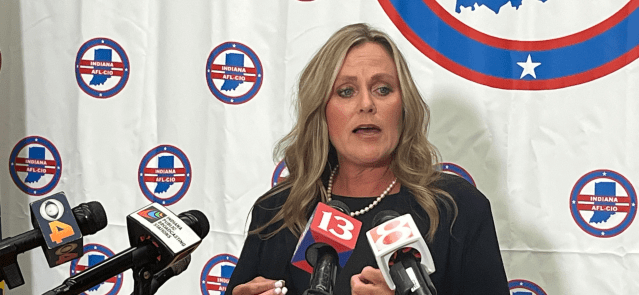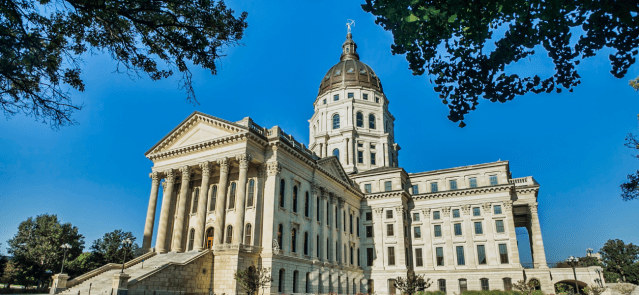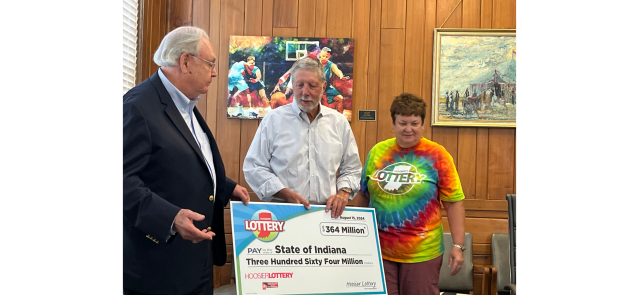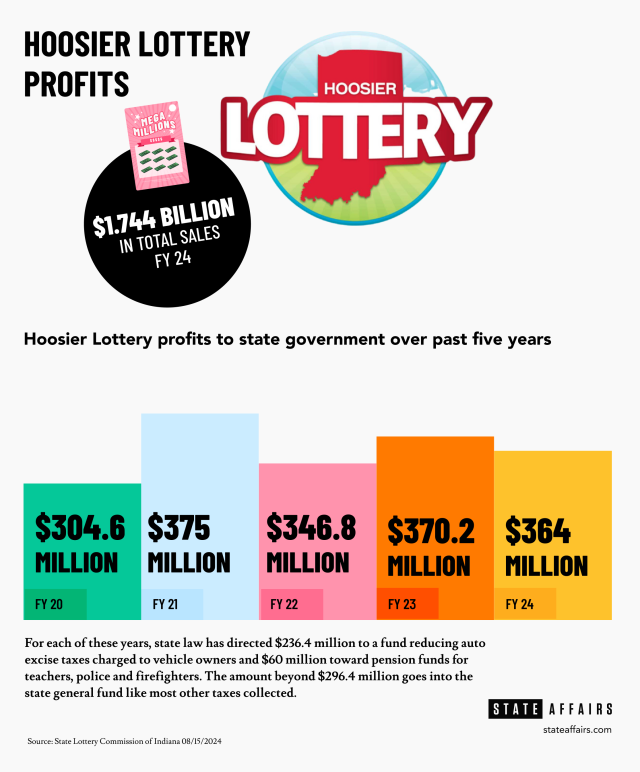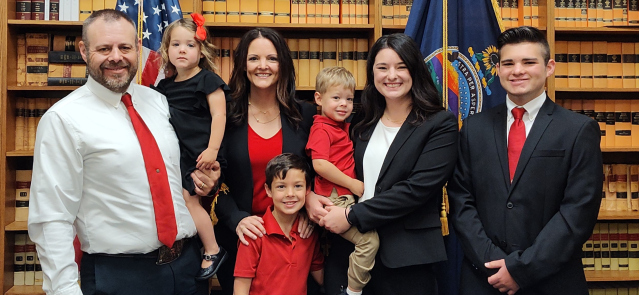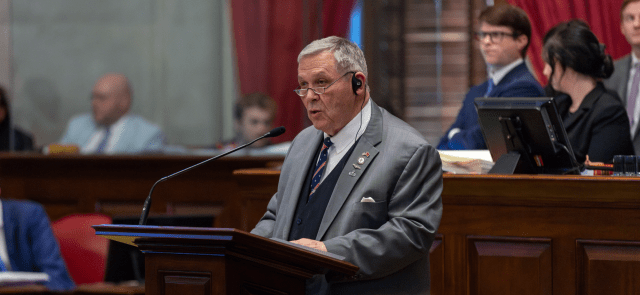Democratic gubernatorial nominee Jennifer McCormick on Thursday released a property tax relief plan with six policy proposals previously featured in discarded bills from recent years, including some authored by Republicans.
The amalgamation of ideas creates several indirect and direct ways of mitigating property tax bill increases, McCormick said during a Thursday news conference.
“You can’t look at one tax without looking at everything because of the ripple effect, and it would be really irresponsible,” McCormick told reporters.
She said the campaign took a “bipartisan approach” when crafting the plan but that she had not spoken with the Republicans tied to the rejected bills. However, McCormick did credit the authors — Rep. Christopher Judy, R-Fort Wayne, Sens. Travis Holdman, R-Markle, and Brian Buchanan, R-Lebanon — along with Sen. Fady Qaddoura, D-Indianapolis, for the “good ideas.”
McCormick’s plan calls for:
- capping annual property tax bill increases at 10% by issuing refundable tax credits to affected homeowners (the proposal excludes school district referendums)
- increasing the maximum homeowner property tax deduction to $3,500 from $2,500
- increasing state and local income tax exemptions to $2,500 from $1,000
- increasing the renters income tax deduction to $4,000 per year from $3,000 per year
In addition, McCormick would bolster deductions for disabled veterans by increasing the cap on assessed value to $350,000 from $240,000 and expanding qualifications.
She also aims to help seniors by increasing income thresholds for Hoosiers 66 and older. Under her plan, they could receive deductions if they make up to $40,000 as an individual or $50,000 as a household with joint returns and have an assessed value of real property up to $300,000. (The income thresholds for the group are currently set at $30,000, $40,000 and $200,000, respectively.)
Together, McCormick said the proposals would save Hoosiers about $600 million, citing fiscal impact statements the nonpartisan Legislative Services Agency previously prepared for the bills. (The campaign did not specify what the projected savings would be in future years.)
McCormick envisions the state covering most of the cost. She expressed an interest in shielding local units of government, businesses and farmers from the brunt of the hit. Yet she acknowledged local units of government would be negatively impacted, losing about $175 million, according to her campaign’s analysis of Legislative Services Agency fiscal impact statements.
McCormick said she would not “take a lot of this” out of the state’s surplus. Instead, she said most of the money would come from the state’s budget, but she did not specify from what line items. Asked about the cost of her other campaign initiatives, the Democratic candidate said it would still be possible to prioritize property tax relief while also raising teacher salaries and implementing other changes.
“There is wiggle room in that budget,” McCormick said.
For weeks, McCormick teased a plan that would contain the approximate fiscal impact on the state and local governments.
“Watching the Braun/Beckwith plan come out without a fiscal impact to it was quite alarming,” McCormick said.
Braun revised his property tax relief plan so that “all Hoosier homeowners’ tax bills will be reset to the lower of their 2021 tax bill” or a new bill with greater homestead deductions. Braun’s campaign has not released calculations on how much his proposal would reduce property tax collections. The campaign also hasn’t posed possible replacements for potentially hundreds of millions in revenue declines for public school districts and local governments, which receive more than 90% of property tax revenue.
“Democrat Jennifer McCormick is a tax-and-spend liberal, and her plan does nothing to tackle the property tax pain Hoosiers are feeling from the inflation crisis created by Democrats that McCormick endorsed: Joe Biden and Kamala Harris,” U.S. Sen. Mike Braun, the Republican gubernatorial nominee, said in a statement to State Affairs. “My bold property tax plan will give Hoosier homeowners immediate property tax relief by resetting bills to 2021 pre-Biden/Harris inflation levels.”
Libertarian gubernatorial candidate Donald Rainwater has proposed capping property taxes at 1% of a property’s purchase price for a maximum of seven years. He said his plan would end “perpetual property taxes.” Republicans have described the plan as infeasible.
The Rainwater campaign did not immediately respond to a State Affairs request for comment.
Total property tax bills on owner-occupied homes increased statewide by 9% in 2021, 9.2% in 2022 and 16.7% in 2023, according to a Legislative Services Agency report.
McCormick previously said her plan would factor in the wishes of the Indiana General Assembly, whose State and Local Tax Review Task Force continues to examine the state and local tax structure, including property taxes, ahead of the new legislative session.
Contact Jarred Meeks on X @jarredsmeeks or email him at [email protected].
